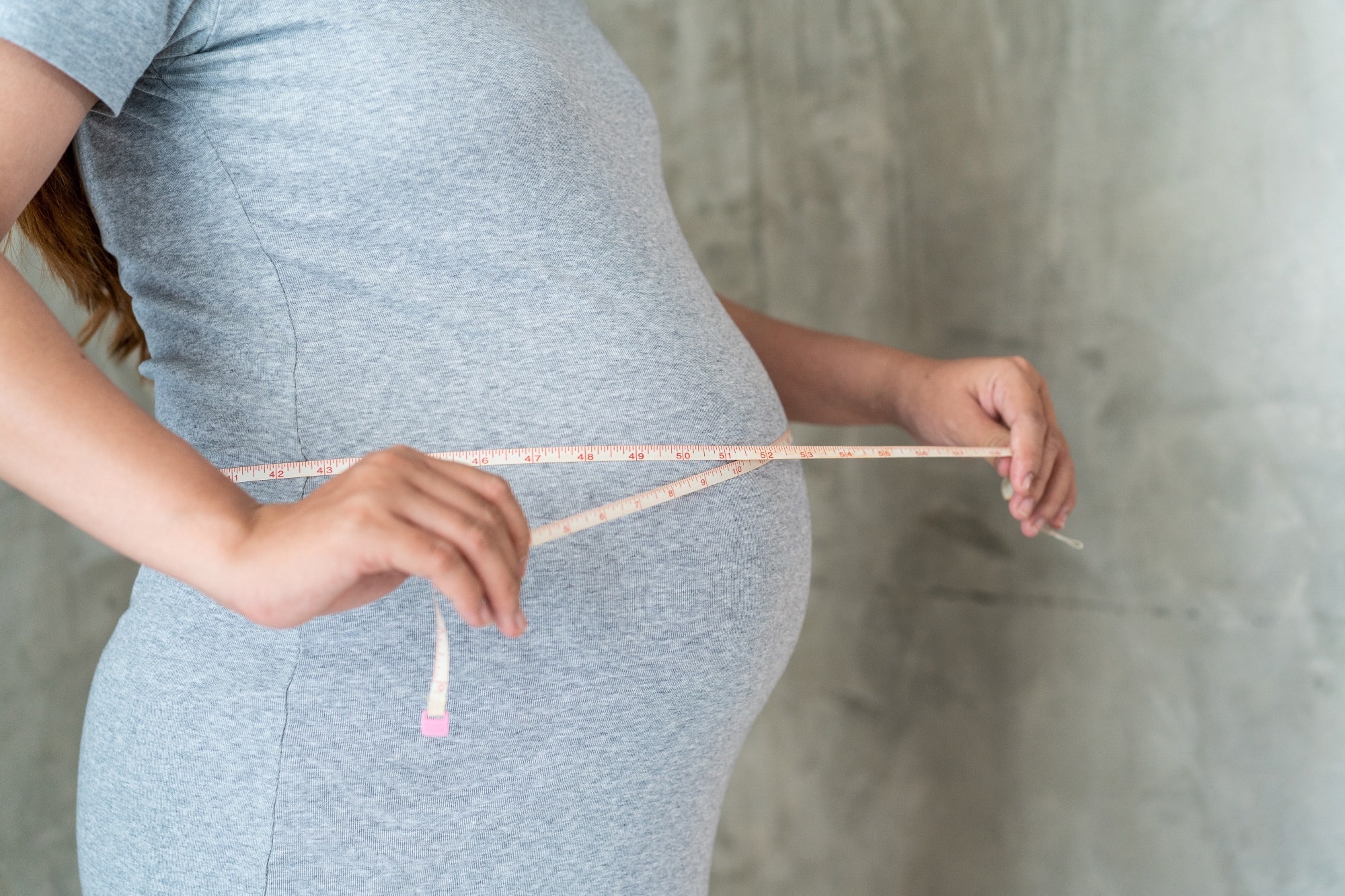In 2000, about 7% of women throughout the world were considered obese; however, recent estimates indicate that obesity affects about 15% of women globally. For women, obesity is both a general and obstetric risk factor, in addition to its association with adverse neonatal health outcomes.
 Study: Adverse childhood experiences and pre-pregnancy body mass index in the HUNT study: A population-based cohort study. DG FotoStock / Shutterstock.com
Study: Adverse childhood experiences and pre-pregnancy body mass index in the HUNT study: A population-based cohort study. DG FotoStock / Shutterstock.com
Introduction
Pregnancies complicated by obesity are high-risk and require increased screening, examination, testing, and interventions. This not only makes the antenatal period more stressful for the mother but also increases their healthcare costs.
Earlier research shows that adverse childhood experiences (ACEs) are a risk factor for adult obesity. This relationship must be further studied to better understand the causes of obesity in each patient.
Obesity may be promoted through chronic unrelieved stress due to autonomic, inflammatory, and neuroendocrine overactivation and eventual dysfunction. This is the allostatic overload theory.
Other theories include stress-driven disruption of the energy balance in children living in dysfunctional families. This could cause abnormal eating patterns, including food addictions, coupled with reduced energy consumption that can lead to weight gain. Post-traumatic stress disorder (PTSD), particularly during childhood, has been shown to strongly predict food addiction.
Healthy weight behavioral choices in children becomes less likely with increasing ACE number. This is likely due to stress responses involving the hypothalamo-pituitary-adrenal (HPA) axis.
The current study examines adult pre-pregnancy obesity against a history of childhood abuse, neglect, or family dysfunctionality. The data came from a population-based cohort from a Norwegian county, Trandelag, along with the Medical Birth Registry of Norway.
Childhood adversity was considered when the individual lost a parent by divorce or death, had a dysfunctional family, reported bad memories of childhood, and did not have any trusted adult to confide in and receive support from.
What did the study show?
Of the approximately 6,700 women who participated in the study, 63% were normal weight, 2% underweight, 23% overweight, and 11% obese before pregnancy. Those considered underweight were slightly younger than those with normal pre-pregnancy weight, less educated, and more likely to be unmarried or having their first baby.
Women who were obese before pregnancy were more likely to be older than those with a normal weight at this point, had less education, and were more likely to be married.
A J-shaped association was observed between ACEs and pre-pregnancy weight. With ACEs of all types, except parental death, the risk of class II and class III obesity more than doubled and quadrupled, respectively, as compared to normal pre-pregnancy weight.
The perception of a difficult childhood increased the odds of pre-pregnancy underweight by 80% and obesity by 60%.
Children whose parents divorced were 34% more likely to be obese. The same degree of increased risk was observed for being overweight in association with poor childhood memories, while the risk of obesity increased by 63%.
Dysfunctional family history and not having had a supportive and trusted adult while growing up contributed an increase of 60% and 70% to the class II obesity risk, respectively. The more obese the individual, the greater likelihood there of childhood adversity.
Interestingly, there was no link between pre-pregnancy weight and parental death.
What are the implications?
The current study indicated higher odds of obesity and being underweight in pre-pregnancy women with a history of ACEs. Parental divorce and bad childhood memories were also linked to increased odds of obesity.
This association appears to be dose-dependent, with class III obesity showing the highest odds for all ACEs except death of a parent. These findings corroborate earlier research, including associations between childhood physical abuse and pre-pregnancy obesity or underweight.
Being underweight was much less common; however, it was associated with strong trends towards an association with ACEs, despite small numbers of subjects. Earlier studies have shown contradictory findings in this area.
The study findings also confirm that pre-pregnancy obesity is more common than pre-pregnancy overweight in association with physical or emotional childhood abuse. The strongest associations observed in the current study were between ACEs and class III obesity.
The lack of an association of either outcome with parental death might be surprising; however, it is likely related to the event. For example, certain parental death events may not affect the child’s self-esteem, whereas another event may be acute rather than drawn-out. Furthermore, these events are often accompanied by physical, emotional, and financial support from other family and community members, thereby mitigating the adverse impact.
In direct contrast is the strong and consistent association of underweight and obesity with parental divorce. This observation reflects the long-term trauma caused by such events in the child’s life.
It is notable that the Difficult Childhood Questionnaire used to assess ACE history in the current study was non-intrusive and non-detailed, unlike many others. Nevertheless, the results reflected a reliable association with pre-pregnancy weight, thus indicating that such assessments are useful and may be less painful for participants.
Based on this knowledge, healthcare providers in maternity care should be sensitive to ACEs among pregnant women with both underweight and obesity.”
Further research is needed to determine how different ACEs interact in increasing the risk for weight gain throughout a woman’s life and help to identify the points at which a critical association is present.
Journal reference:
- Sandsaeter, H. L., Eik-Nes, T. T., Getz, L. O., et al. (2023). Adverse childhood experiences and pre-pregnancy body mass index in the HUNT study: A population-based cohort study. PLOS ONE. doi:10.1371/journal.pone.0285160.